Anders Christian Hougaard, Ambassador of Denmark to Serbia – We are not so rich to waste anything
 Thursday, 08.02.2018.
Thursday, 08.02.2018.
 14:17
14:17
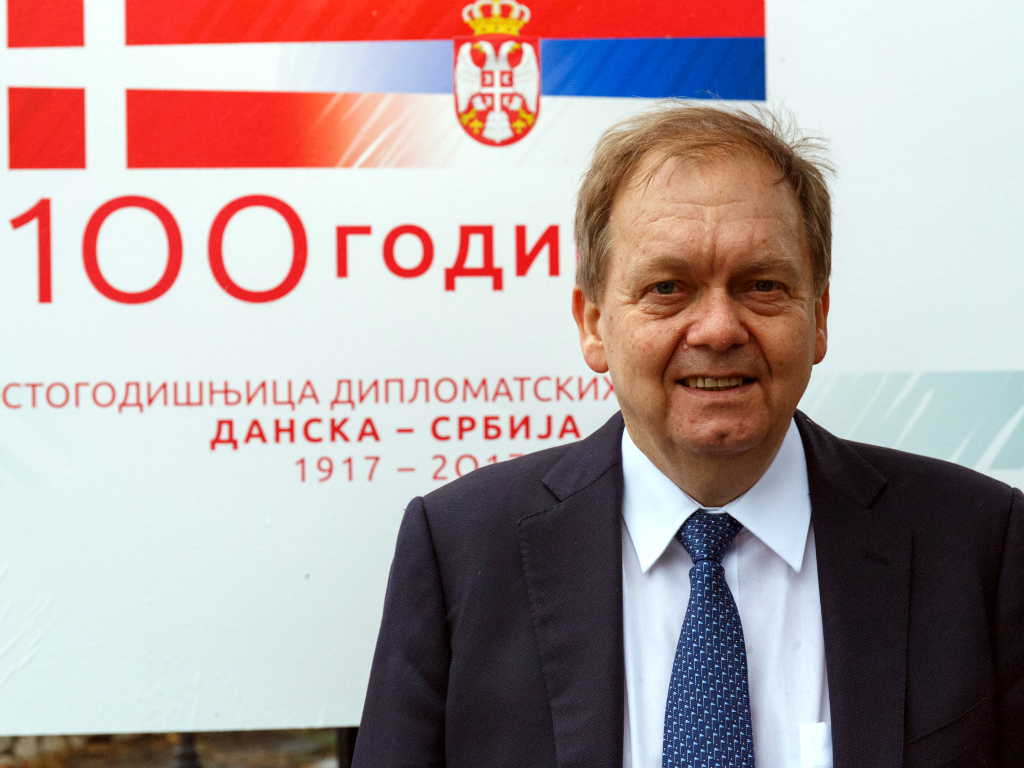
Hougaard especially emphasizes the results of Danish companies in energy, environmental protection and agriculture.
– We often say in Denmark – We are not so rich to waste anything! We therefore try to create energy from everything we can – wastewater, waste itself, biomass, biogas. I believe Serbia would greatly benefit from this technology, which does not necessarily have to be expensive or too advanced.
We also talked to Ambassador Hougaard about what Serbia can offer to Danish companies and about the two countries` relations and cooperation in other fields.
eKapija: How do you see the economic and trade relations of our two countries? According to your data, what did the trade between Denmark and Serbia amount to last year and what was traded the most?
– I personally believe there is a lot of room for improving the trade relations. The reforms conducted can only boost those relations, creating more jobs and earnings for all involved. According to our data for 2016, Denmark’s exports of goods to Serbia was worth around EUR 122 million, while we imported Serbian goods in the value of around EUR 52 million.
When it comes to the type of goods imported / exported, we see most interest around general industrial machinery and equipment, machine parts and pharmaceuticals. Denmark has some of the strongest companies in that area, and we are pleased to see Serbia is taking part in it as well.
eKapija: Are Danish investors interested in investing in Serbia and to what extent and how often do Danish businessmen turn to you for advice as to how to reach the Serbian market?
– Danish investors are indeed getting more and more interested in Serbia. The economic reforms conducted so far in Serbia have had a good echo abroad, so we get a lot of requests from various industries.
The Danish Ministry of Foreign Affairs has a very active Trade Council and each mission has a Trade Advisor / Department. Danish companies are very inclined to use embassies as first point of contact when they examine a market or decide to make an investment.
eKapija: How do you present Serbia as an investment destination to potential investors and how important is the Danish Business Club in that respect?
– We can do all the talking, but the best ’presentation’ is done by an actual investor. This is why we have set up Danish Business Club – to provide additional support and network to Danish companies already doing the business in Serbia or to those planning to enter the market.
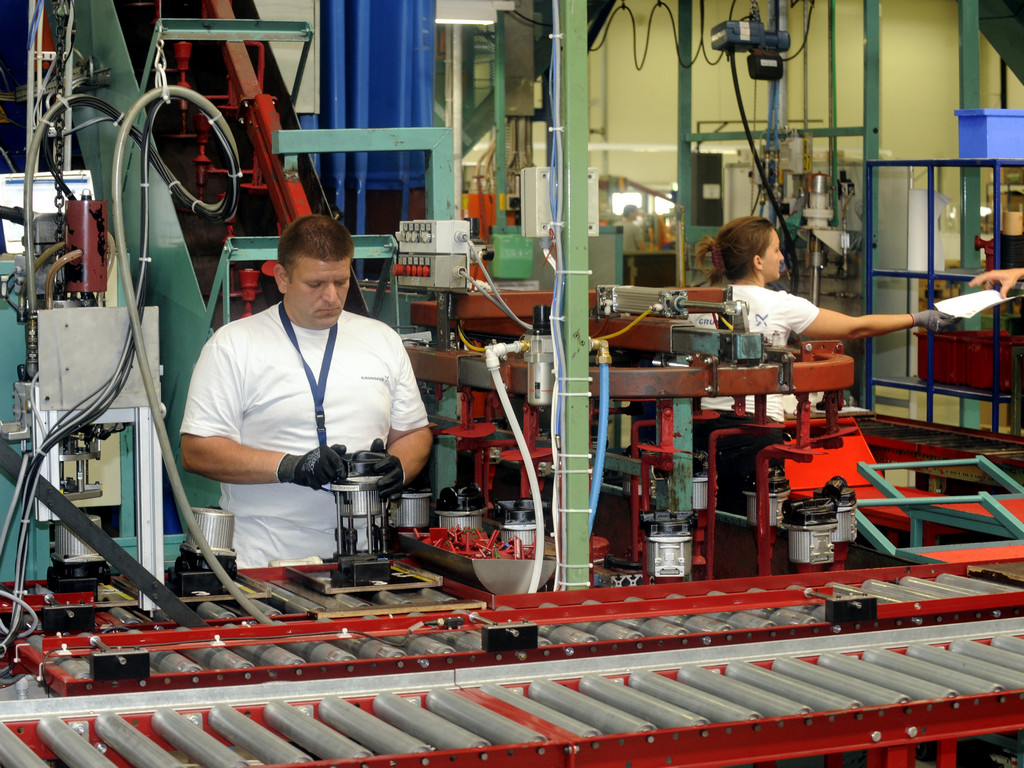
These six alone cover almost all corners of Serbia and have enough experience with the market.
eKapija: In which fields can companies from the two countries establish cooperation?
– I would say in all the fields, sky is the limit! Denmark’s economy is based on small and medium-size enterprises. Many of them are niche companies, as they are aware they cannot compete with big, more economical players.
We have come a long way in exploring sustainability and green solutions – we are very patriotic about our environment and we take good care of it. Denmark is trying to phase-out coal consumption for energy production. We have excellent solutions for windmills, solar energy, waste-to-energy plants and technology.
We often say in Denmark – We are not so rich to waste anything! We therefore try to create energy from everything we can – wastewater, waste itself, biomass, biogas. I believe Serbia would greatly benefit from this technology, which does not necessarily have to be expensive or too advanced.
eKapija: What are the biggest advantages of Serbia when it comes to attracting investments? What are its flaws and in which areas can it improve?
– I would say Serbia is very attractive to investments and this is how we try to present it to potential new players in the market, but do not paint a pink image.
Some of the advantages we mention are hard-working and educated workforce, Government and local authorities support to the investors, proximity to Denmark and the same time zone, similar mentality and business acumen, various free trade agreements.
Of course, there is much-talked labor force price-quality ratio, but I would not say this plays the crucial role for an investor. They are all here for the long run, so they have to take all the elements into consideration.
Some of the areas for improvement are definitely ’red tape’ – heavy and big bureaucracy. I am happy to hear digitalization is high on the Government’s agenda – it does not only mean you can find the data online, but it saves time for the people, it makes it more convenient and more transparent, which in turn reduces chances for corruption.
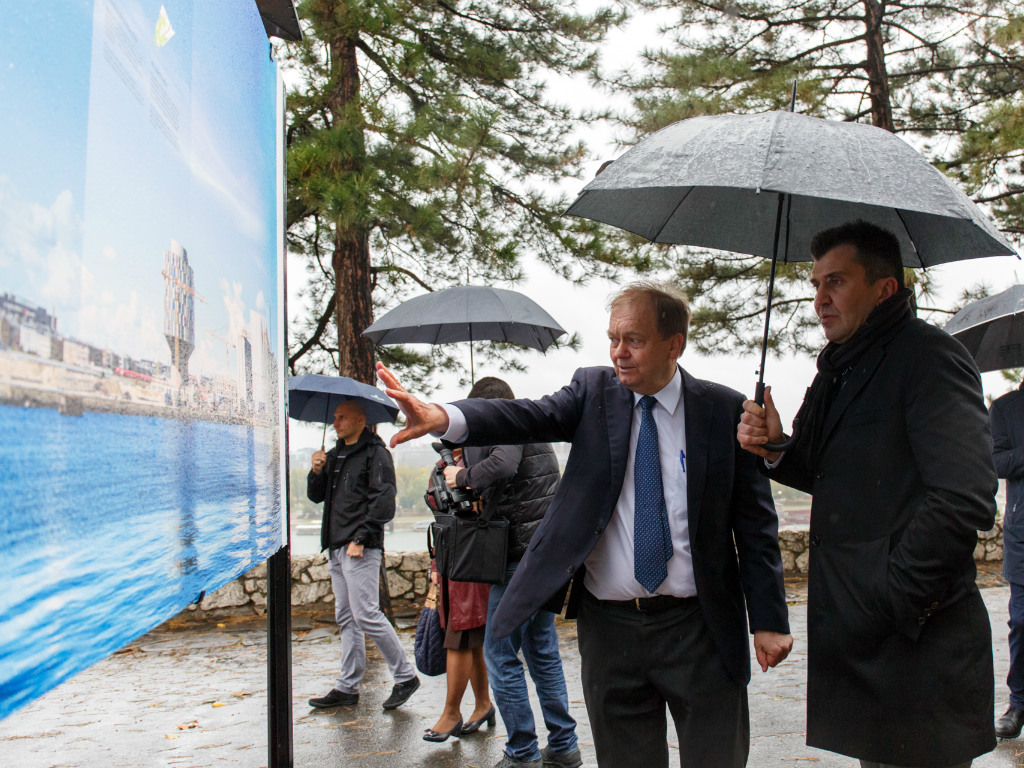
eKapija: How many Danish companies do currently do business in Serbia? According to your findings, how satisfied are they with their business activities in Serbia?
– Approximately 40 Danish companies do business in Serbia, of various size. They seem to be very happy here – some are expanding production facilities, like Ergomade or Grundfos. Some are expanding the teams they are hiring, like NIRAS and COWI.
Some have been here for more than 20 years, like Velux, Danfoss, Novo Nordisk. Many present top companies in their field, like Carlsberg or DSV logistics and shipment. We really have an array of companies present here, and they are all here to stay!
They are pretty satisfied with their operations here, although they do mention big bureaucracy and lack of transparency in certain areas. No matter how different they are, they all stress the importance of rule of law and predictability of business environment. The foundation for those two is a dialogue between the public and private sector.
eKapija: How present are Serbian companies in Denmark?
– Not too present, I am afraid. We hope the situation will change as the country’s economy recovers. I believe Serbia has a lot to offer to Denmark.
eKapija: Big Danish companies, as you`ve said, are very present in Serbia. How interesting is Serbia to small and medium companies, which are very developed in Denmark?
– You have noticed well that Denmark’s SMEs sector is well developed. Around 1 million people are employed by them, which is 2/3 of workforce. Also 39% of all the public procurement procedures in Denmark are won by SMEs.
They are an extremely important player and employer in Denmark – people are not looking to the state for employment, but to such companies. It is therefore important to have a strategy for their development. Together with the impeccable rule of law and zero tolerance for corruption, an environment is created for such companies to thrive and compete among themselves.
I believe there is room for improvement in that area. Danish SMEs are naturally oriented towards neighboring countries, such as Germany, Holland and other Nordics. It is our task to make Serbia relevant for them.
eKapija: Representatives of DFA visited Serbia in November and announced that they were interested in expanding their business to our country. How applicable are Danish experiences in the agrarian field, in which your country is among the global leaders, in Serbia?
– We had a very good visit by the Danish Farmers Abroad in November. The embassy helped them organize their stay in Serbia and Bosnia and Herzegovina. It was not their first time here, but they were interested to revisit the place and get to know it better. Some of them already operate in the Ukraine and Russia, so they are familiar with the mentality and business environment.

I believe we can show how we make circular farms and how we use crops and animals in the most productive manner. The key characteristic of Danes is efficiency and I believe we have mastered it in many areas, not least agriculture. I think Serbia should make most of our experience in that area.
eKapija: In 2017, the 100th anniversary of the establishment of regular diplomatic relations between Copenhagen and Belgrade was marked. How do you see the current state of economic and political relations of our two countries?
– Denmark has always had good relations with Serbia. We do not necessarily have to agree about all matters, but the foundations of our relations are strong and both countries benefit from it.
eKapija: As a member of the EU, Denmark actively supports Serbia on its way to joining the EU. How would you rate the results Serbia has made so far in that respect?
– Denmark is a strong supporter of Serbia’s EU path, we believe you belong to the European family. It may often seem the conditions to join the EU are strict, but the idea behind them is to support the country in reaching the EU standards even before it joins the EU.
Once it takes places, that given country can fully enjoy the perks of the membership. Finally, the reforms conducted are beneficial by themselves, as they improve the society as a whole and increase the living standards for all the citizens. A lot has been done already. Just look at opened the Negotiation Chapters and their progress. But more than just chapters, we have seen improvement – mostly through our contact with the Danish companies already present here.
I was especially pleased to hear that the Environment Ministry has been formed, because a lot needs to be done in that area. In my opinion, this is how one shows patriotism – by taking care of one’s own country and its resources. As mentioned before, rule of law and digitalization are two key horizontal issues which are, in my opinion, a precondition for all other areas.
eKapija: What is cooperation between Serbia and Denmark like in other fields?
– Cooperation is very good – we have just finished the celebration of 100 years of diplomatic relations between our two countries. Denmark has had numerous projects with Serbia, I will name just a few.
In the defense area, we have been a significant donor to the Serbian Army and the Defense Ministry. We have successfully implemented a development project „Fruits and berries“ in South Serbia where more than 800 jobs were created. We have taken part in the projects dealing with judicial reform, veterinary standards, media freedom, resettlement of refugees, ombudsman institution and local economic development.
eKapija: Could we announce new activities of the Embassy?
– In our work, we can say we have two tiers – one is trade and the other is culture and public diplomacy. We will keep working on connecting Danish and Serbian markets, and do our best to promote Denmark to the citizens in Serbia, either via exhibitions or concerts or any other activity.
Milos Vlahovic
 Ambasada Kraljevine Danske Beograd
Ambasada Kraljevine Danske Beograd
 Carlsberg Srbija doo ÄŚelarevo
Carlsberg Srbija doo ÄŚelarevo
 Grundfos Srbija d.o.o.
Grundfos Srbija d.o.o.
 Novo Nordisk Pharma d.o.o. Beograd
Novo Nordisk Pharma d.o.o. Beograd
 Danfoss d.o.o. Beograd
Danfoss d.o.o. Beograd
 ERGOMADE DOO BREST
ERGOMADE DOO BREST
 Healthcare Europe d.o.o. Ruma
Healthcare Europe d.o.o. Ruma
 DSV Road d.o.o. Krnješevci
DSV Road d.o.o. Krnješevci
 Ministarstvo odbrane Republike Srbije
Ministarstvo odbrane Republike Srbije
 Ministarstvo zaštite životne sredine Republike Srbije
Ministarstvo zaštite životne sredine Republike Srbije
 Vojska Srbije
Vojska Srbije
Top priÄŤe
18.04.2024. | Industrija, Finansije
Strickland Metals has entered the “profitable Serbian gold game”, having set aside 37 million dollars for the purchase of the Rogozna project, which boasts an enormous resource of 5.44 million ounces of gold equivalent (around 170 tons), Australian media report. The Australian giant Strickland Metals Limited is in the business of detecting world-class mineralized systems with a focus on gold and copper. As the media report, Strickland

16.04.2024. | News
Economy Fair in Mostar opens – 26 companies from Serbia exhibiting
16.04.2024. | News
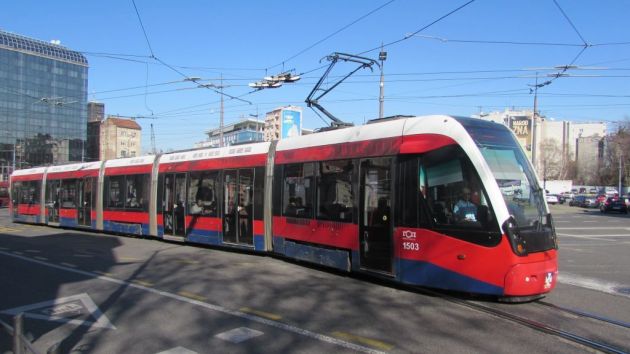
18.04.2024. | Saobraćaj
Jovanovic: Purchase of Siemens trams produced in Kragujevac for GSP Beograd should be considered
18.04.2024. | Saobraćaj
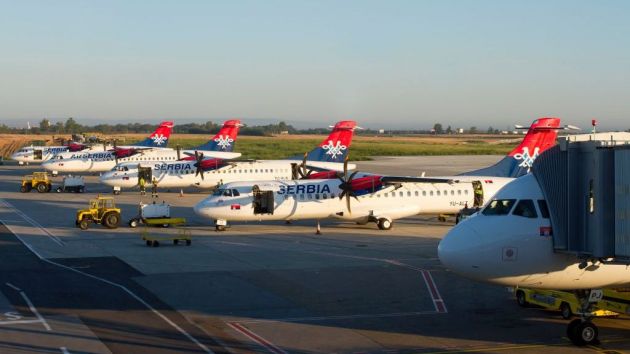
18.04.2024. | Industrija, Saobraćaj
Air Serbia: Eighth ATR 72-600 arrives to Belgrade, expected to join operations soon
18.04.2024. | Industrija, Saobraćaj
eKapija+
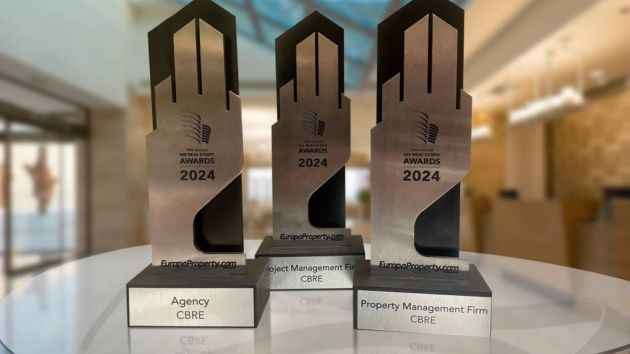
18.04.2024. | News
CBRE confirmed its leadership position with Hat-Trick at the 19th SEE Real Estate Awards
18.04.2024. | News
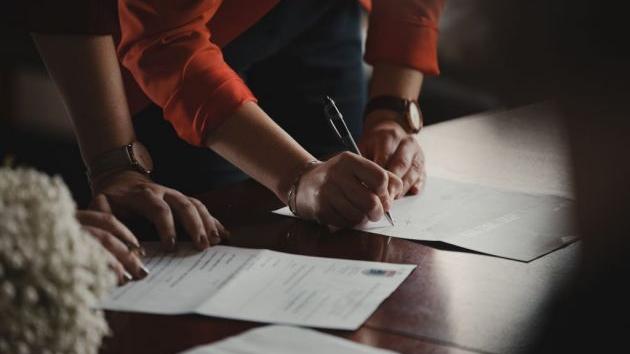
18.04.2024. | News
Consensual termination of employment relationship – News in the court practice?
18.04.2024. | News

18.04.2024. | Građevina
New dimension of life in the part of Belgrade which is waking from sleep (PHOTO)
18.04.2024. | Građevina
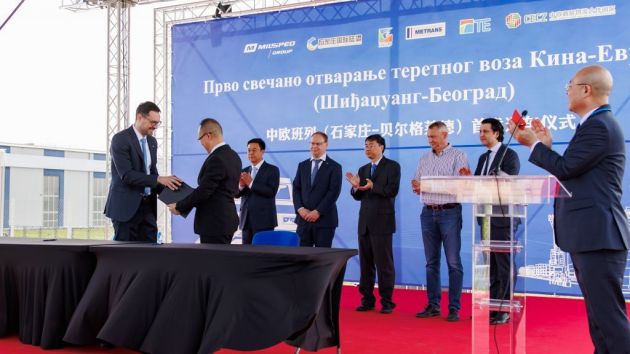
17.04.2024. | Saobraćaj
Milsped Group to establish direct rail line between China and Serbia
17.04.2024. | Saobraćaj


 Izdanje BiH
Izdanje BiH Izdanje Srbija
Izdanje Srbija Serbia Edition
Serbia Edition Serbische Ausgabe
Serbische Ausgabe


 News
News








